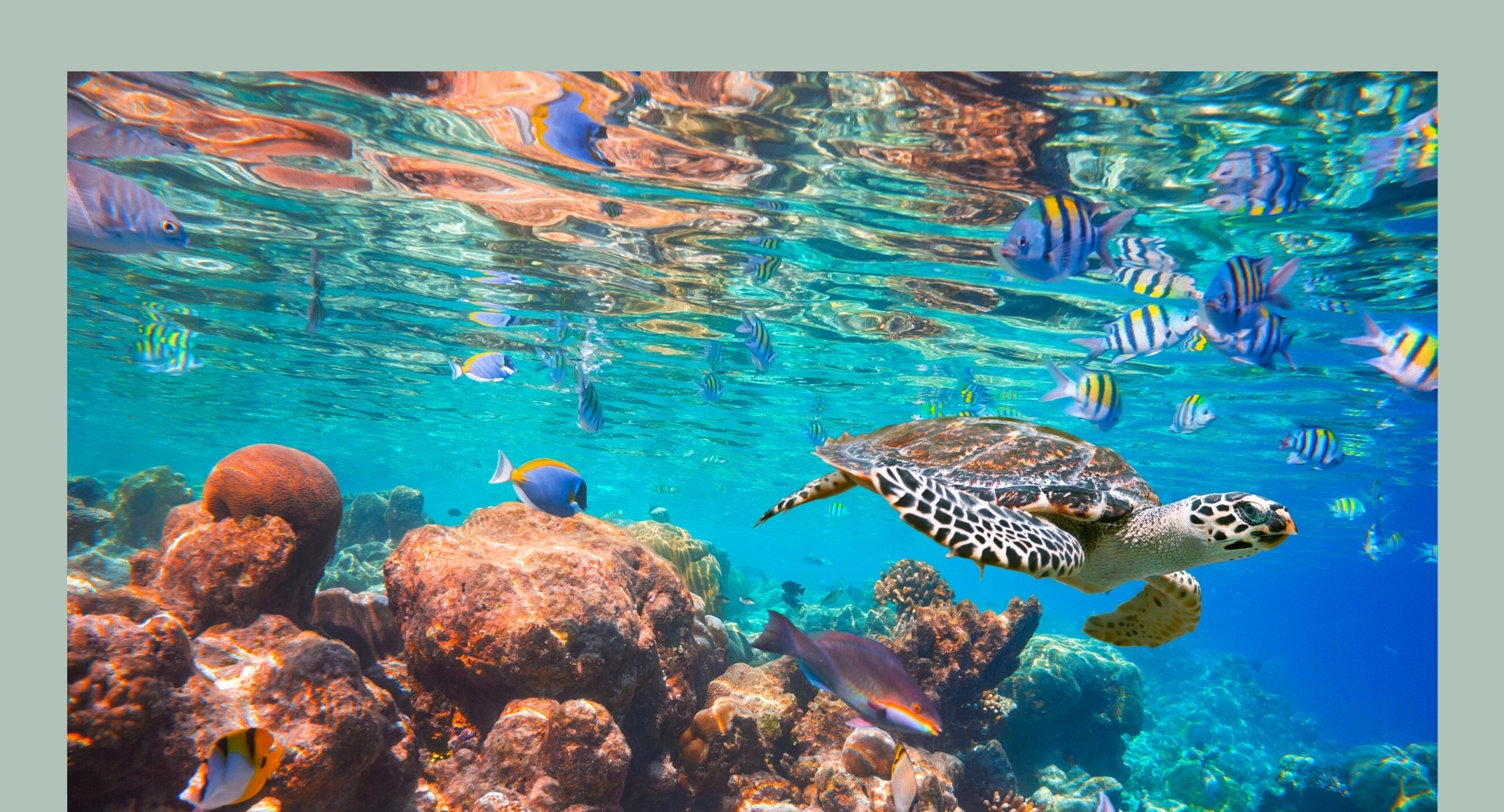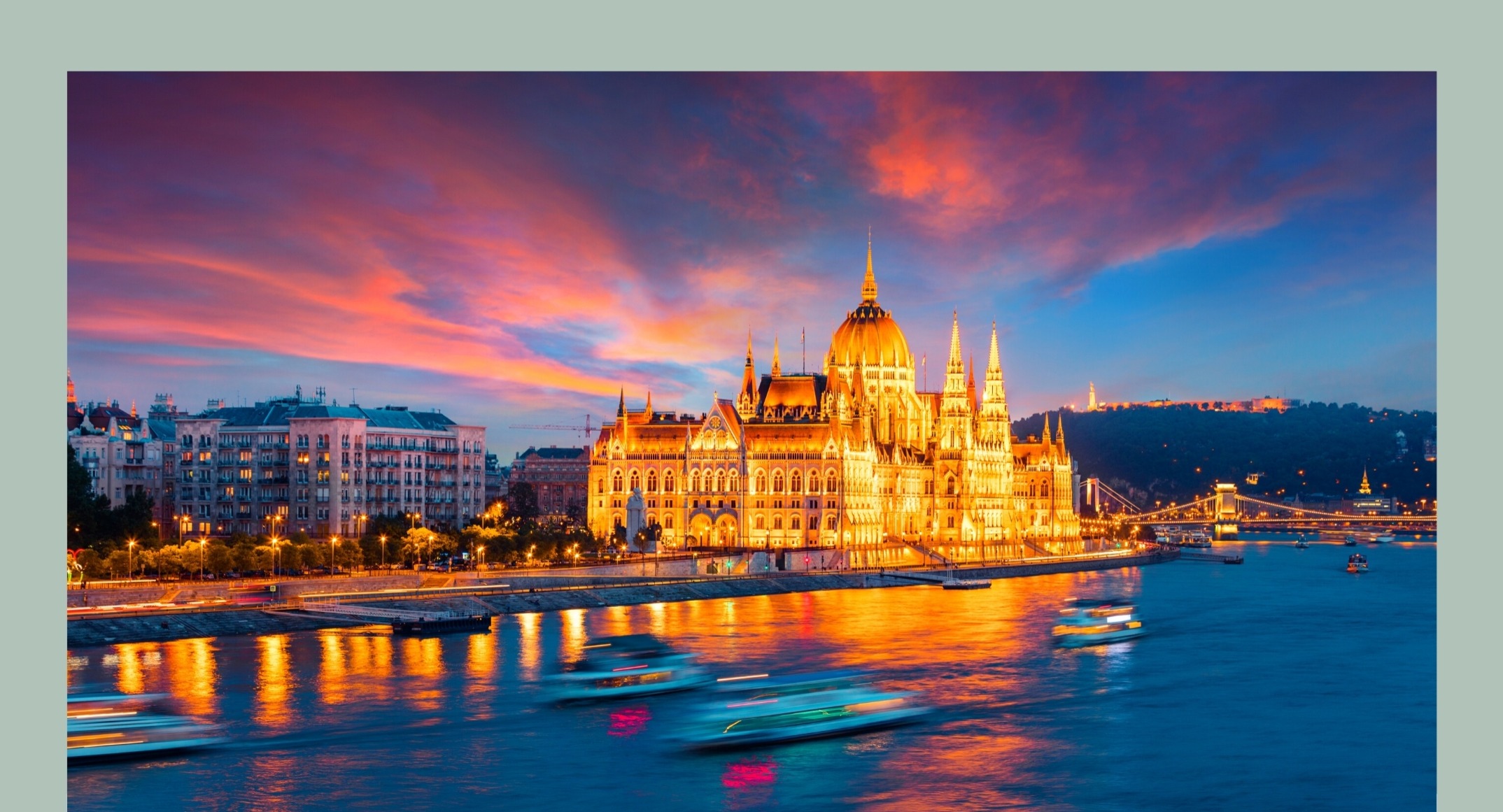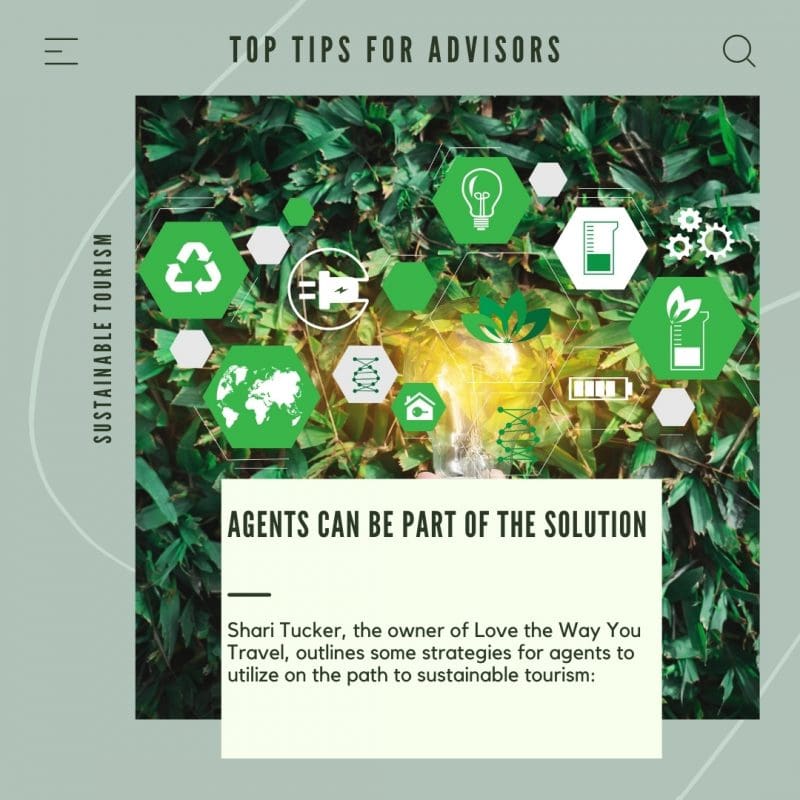How travel advisors can be more engaged in sustainable tourism
Ann Ruppenstein
After getting over the initial shock and devastation the pandemic had on her business, Halifax-based travel advisor Shari Tucker made the decision to carve out a future in responsible tourism.
“The stress and overwhelm of trying to do everything for everyone just wasn’t what I wanted my business to look like. For me to stay in the business, it was only worth it if I could be part of the solution for a better world instead of turning my back to the problems tourism was creating,” says Tucker, the owner of Love the Way You Travel. “Seeing the tourism industry crumble and all the lives affected around the world by the lack of tourism made me take a hard look at our power and our privilege as travellers. It was a wake-up call. I already had the tools, knowledge and connections to do better, I just wasn’t putting them all together.”
Tucker changed her business model, rebranded the company and launched a new website in April with a mission to empower Canadian travellers to make responsible choices.
“With that comes a commitment to educating travellers, clients and others in the industry about the importance of responsible tourism for all of us. I hope people will visit my website to learn what responsible tourism is and how to incorporate it into their travels for more meaningful experiences that have a positive impact,” she says.

“It’s a bit of a catch 22 because tourism done poorly can be damaging to the environment and communities that we, as travellers wish to visit. But, on the flip side, tourism done responsibly can build communities up, help regenerate land, protect habitats, help protect vulnerable animals, create employment, empower women and marginalized communities. The world needs tourism to thrive.”
As the world slowly begins to reopen to international tourism, Tucker says it is up to everyone in the industry to get educated about the harms of mass and over tourism.
“Destinations that are too busy aren’t enjoyable for most travellers and instead of coming home with amazing experiences, they talk about the frustrations of the crowds and long lines. The lives of locals are often unbearably disrupted, which often turns to annoyance with tourists. Rental prices for apartments and store fronts often rise so much that locals can’t afford to stay in their homes, or their businesses are bought up by foreign investors,” she notes. “All of a sudden, the charm of the city is overtaken by foreign investors, new construction and more tourists than locals. How is that an authentic travel experience? Do you go to Spain to eat international food and mingle with other tourists or to see traditional Flamenco, admire Gaudi’s art and eat paella at sunset with a sea view?”
Collectively, Tucker says the industry needs to be more sustainable.

“Not everything can be done without harm, but we should be aiming to give more than we take from the earth and from the people. Travel is a privilege, not a right,” she says. “Every time we travel we need to check that privilege at our front door and remember that we are visitors in these destinations. No matter whether you consider yourself rich or poor here in Canada, you are rich if you can afford the luxury and have the privilege to travel. We should all be conscious of giving back and having a positive impact to lead the way for a better future.”
Agency steps up to end the ocean plastic crisis
Meanwhile, Rick MacSwain, the managing director of Network Travel in Edmonton, Alta., took a different approach towards a more sustainable future. MacSwain’s agency Network Travel partnered with Certified B Corporation 4Ocean in its One Pound Promise to end the ocean plastic crisis.
“It really hit closer to home while on a cruise and wondering what was floating off in the distance from the view of my balcony. As we got closer, I was saddened to discover that we were sailing through a massive floating patch of debris,” MacSwain tells Travel Courier. “I remember the conversation with my friends while looking overboard. ‘With all the debate and government spending about saving our climate, how can this even be possible? How can we be sailing through an island of trash and only a short distance from a historic port in Europe? Why isn’t anyone talking about this?’ Cleaning up ocean garbage is something that has an immediate effect on marine life.”

MacSwain says the initiative came about after watching a documentary about how oceans are an unprotected dumping ground for plastics and abandoned fishing nets with his 19-year-old daughter.
“My daughter mentioned the 4Ocean group and how she loved the work they were doing,” he said. “I did some research and realized their founders had a similar experience [to mine] and they decided to take action. 4Ocean creates bracelets from recycled plastics and each bracelet that is sold comes with their One Pound Promise to remove a pound of plastic and trash from our oceans, rivers and coastlines. 4Ocean’s goal is to pull 20 million pounds of trash by the end of 2021.”
In addition to bracelets, 4Ocean creates a variety of products from recycled plastics including sneakers and reusable shopping bags. As of Feb. 13, 2021, the 4Ocean team pulled 13 million pounds of trash from the ocean towards its goal of reaching 20 million pounds by the end of the year.
“The 4Ocean group is a natural fit for Network Travel and our industry,” he says. “We want to do our part and bring awareness as many travel experiences involve oceans, rivers, coastlines and beaches. Our oceans are our largest carbon sinks on earth and the protection of marine life, and their environment is something we are very passionate about. In support of 4Ocean, we are bringing awareness by periodically hosting promotions with complimentary bracelets for our clients who purchase ocean, river or beach experiences.”

Now that travel and tourism will soon be a reality again, Network Travel is also offering experiences in destinations that depend on thoughtful and sustainable tourism for the survival of a species or the economy of a community.
“In countries such as Uganda, the protection of their gorilla population from poaching is dependent upon tourism dollars. Gorilla trekking experiences are escorted by local park guides and the numbers are strictly regulated by government permits,” he explains. “Our guests experience a lodge called Ride 4 a Woman. This is an authentic Ugandan experience supporting a local charitable organization set up to support women struggling with poverty and domestic violence.”
Another destination the agency is focused on supporting sustainably is Kenya through Land Cruiser tours with private local drivers and guides, which are capped at four people per vehicle.
“Your safari game drive begins at the Nairobi airport and circles the highlights of the country,” he says. “Guests meet each night at their lodge to share their stories while enjoying the Sundowner experience. The driver and guides are employed locally, and guests are immersed into the local communities and cultures along the route.”

MacSwain also points to the river cruise industry as an “excellent example” of supporting sustainable tourism.
“River cruises provide a more intimate experience with fewer guests, avoiding a massive influx of tourists at each stop. Many river cruises provide the food and wines of the regions they are passing through,” he explains. “River communities see a significant boost to their economies and display a pride of ownership as they welcome tourists to their shops and cafes.”

1) Education matters: Advisors should do some research on the harms of mass and overtourism. Once you know how tourism is harming the environment, animals and people, you can offer alternatives. You don’t have to stop selling any particular type of travel, but you can offer more sustainable alternatives.
If your niche is ocean cruises, learn what each cruise company is doing to protect the oceans, to support local communities and to save the environment. If you find one company that is doing more than others, make them your go-to, first option to offer clients. For new-to-cruising clients, take the opportunity to offer them options on a smaller, more sustainable vessel and get them hooked on more sustainable options from the start rather than trying to switch them later.
No matter which niche you are in, you have influence over what your customers buy. Instead of being an order taker, be an expert resource and educator who makes clients feel good about how they invest their tourism dollars.
2) On navigating hotspots: If clients are adamant about visiting a destination that is teeming with people, encourage them to visit during a shoulder season. The experience will be less crowded and more enjoyable for them, and it will help spread the tourism season longer for the locals.
In a bit of an oversimplified example, if a tour company has the capacity to host 1000 tourists in their six-month busy season, they miss out on serving the other 100 clients. But, if those other 100 clients travel in the off season, that tour operator now extends their season and capacity to earn from an additional 100 tourists. That trickles down through the company to the guides, to their families and then to their communities.
3) Focus itineraries on cultural experiences from wellness in traditional Nordic spas to pasta making classes in Italy. These hands-on experiences where clients connect with their fellow travellers and local community members will be far more memorable than a hop on hop off bus tour and they’ve supported a local business, experienced the culture and interacted with locals.

















